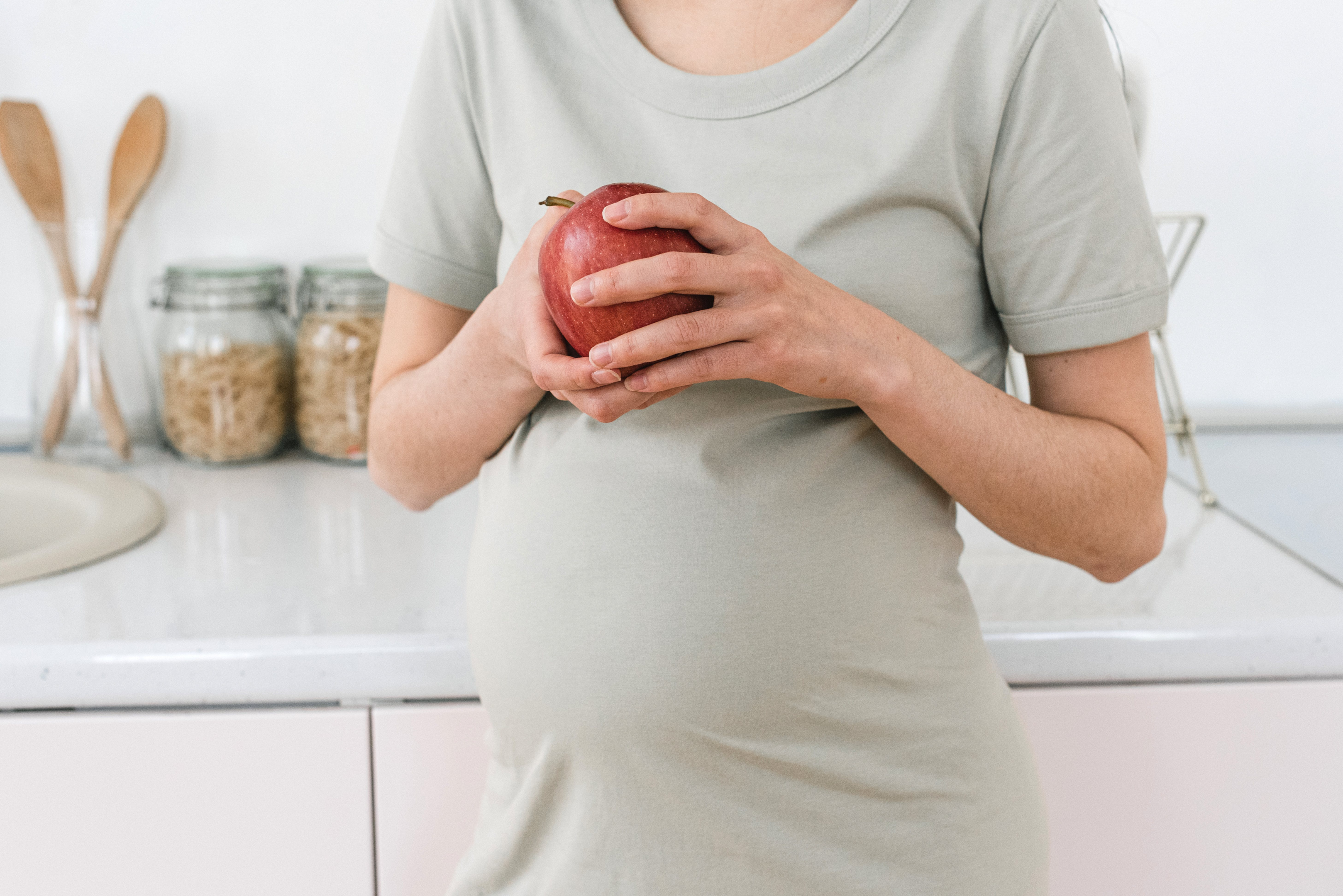Ensure Your Baby Receives the Best Possible Start through Your Smart Food Choices
Nutrition when Pregnant: Importance of Diet
A balanced and healthy diet is important for staying in top-notch health. Especially for women planning to have a baby, eating right is key to getting your body ready for the demands of pregnancy. Eating a nutritious diet before and during pregnancy is essential for safeguarding the well-being of the expectant mother and the developing baby, shielding them from potential health risks in the short and long term.
Nutrients Needed During Pregnancy: Healthy Eating
The nutritional well-being of a woman during pregnancy hinges on the presence of nutritional reserves using certain food group — which are accumulated stores of specific micronutrients like calcium and iron acquired through prior consumption of foods rich in these elements. The buildup of these reserves before conception underscores the importance of maintaining optimal nutrition. This proactive approach to preparing food itself is key to ensuring sufficient nutritional status during pregnancy.
It's crucial to note that women who are underweight, overweight, or have deficiencies in specific micronutrients seldom manage to "catch up" by enhancing their diet once they are pregnant. By that stage, the body already contends with additional nutritional demands due to the growing baby, making preconception nutritional care a vital factor.
Nutrient Guide for a Healthy Pregnancy:
-
Vitamin D: For Bones and Immunity
-
Supports baby's bone and teeth development.
-
Source in sunlight, fatty fish, and fortified dairy products.
-
-
Saturated Fat: Balancing Act
-
Essential in moderation for a balanced diet.
-
Sources include red meat, full-fat dairy, and tropical oils.
-
Opt for lean meats and balance with unsaturated fats.
-
-
Dairy Foods: Calcium Powerhouses
-
Rich in calcium for baby's growth and development.
-
Excellent protein source found in milk, yogurt, and cheese.
-
Opt for low-fat options and explore fortified plant-based alternatives.
-
-
Folic Acid: Neural Tube Guardian
-
Crucial for preventing neural tube defects.
-
Sources include leafy greens, fortified grains, and legumes.
-
Consider supplements before conception and early pregnancy.
-
-
Mineral Supplements: Bridging Gaps
-
Fill nutritional gaps with iron (found in red meat, beans, and fortified cereals) and calcium (dairy, fortified plant-based milk).
-
Moderate intake to avoid adverse effects.
-
What is a balanced diet?
Eat for you, not for two - The idea that one needs to "eat for two" during pregnancy is a common myth that needs clarification. It's important to note that while you are indeed nourishing yourself and your growing baby, doubling your food intake is not a requirement. According to the Department of Health Australia, in the second and third trimesters, there are some additional nutritional intake is beneficial to support the optimal growth of your baby.
Rather than a significant increase in quantity, the focus should be on the quality of your food choices. Incorporating a slightly larger portion of nutrient-dense foods into a vegetarian diet can provide the essential vitamins and minerals needed for both you and your baby.
For instance, consider enhancing your daily intake with an extra serving of fruit and vegetables, lean protein sources, and whole grains. A practical and delicious example could be enjoying a small bowl of whole-grain pasta topped with a variety of vegetables and a sauce made from lean meat or beans.

Here's the breakdown for your pregnancy menu:
-
Fruits and Veggies: Go for a rainbow of colors! Aim for 2 servings of fruit and 5 servings of green leafy vegetables daily to keep things fresh and nutrient-packed.
-
Grains and Cereals: Load up on whole grains and high-fiber options – eat for 8½ servings a day. Your energy levels will thank you!
-
Iron-rich foods: Eat iron-rich foods such as lean meats or tofu – 3½ servings of meat or alternatives are your go-to for that much-needed iron boost.
-
Calcium Kick: Milk, hard cheese, yogurt – go for reduced-fat options and aim for 2½ servings a day to keep those bones strong.
-
Stay Hydrated: Water is your best friend, so drink up!
Incorporate Healthy Snacks in Your Pregnancy Diet
-
Fresh Fruit: Grab a handful of fresh berries, apple slices, or citrus fruits for a sweet and vitamin-rich snack.
-
Greek Yogurt with Nuts and Seeds: Combine Greek yogurt with a sprinkle of nuts (like almonds or walnuts) and seeds (such as chia or flaxseeds) for a protein-packed and satisfying option.
-
Vegetable Sticks with Hummus: Dip colorful vegetable sticks (carrots, cucumber, bell peppers) into hummus for a tasty and nutritious snack rich in fiber and vitamins.
-
Avocado Toast: Spread mashed avocado on whole grain toast for a snack that's not only delicious but also packed with healthy fats and fiber.
-
Smoothies: Blend a nutritious smoothie with ingredients like spinach, banana, Greek yogurt, and a splash of milk for a refreshing and nutrient-packed option.
Remember to listen to your body's hunger and fullness cues, and choose snacks and healthy foods that not only satisfy your cravings but also contribute to your overall well-being during pregnancy.
FAQs: How Does Maintaining a Healthy Diet Benefit My Baby?
The nutrients you consume play a pivotal role in supporting your baby's optimal growth and development. Essential vitamins and minerals, such as certain nutrients such as folic acid, iron, calcium, and omega-3 fatty acids, contribute to forming vital organs, bones, and tissues. These nutrients also aid in developing the baby's nervous system and brain, laying the groundwork for cognitive function.
A well-balanced diet fosters physical development and reduces the risk of birth complications. Adequate nutrition helps regulate weight gain during pregnancy, lowering the likelihood of gestational diabetes and hypertension. Additionally, proper nutrient intake supports the body's ability to manage stress and adapt to the physiological changes associated with pregnancy. This, in turn, contributes to a healthier pregnancy experience and a smoother transition to motherhood.
Nutrient-rich foods provide the building blocks for a robust immune response, offering protection against infections and illnesses. The benefits extend beyond pregnancy, influencing your child's health trajectory well into infancy and early childhood. By prioritizing a nutritious diet, you contribute to a foundation of well-being that can have long-lasting positive effects on your baby's overall health and development.
What are the Recommended Servings during Pregnancy?
The Australian Dietary Guidelines provide recommendations for pregnant women to ensure a healthy diet. These guidelines include:
-
Vegetables and legumes/beans:
5 serves per day for 18-year-olds and those under 50 years of age
Examples: ½ cup cooked vegetables, ½ cup cooked or canned beans, peas, or lentils, 1 cup green leafy vegetables, ½ cup sweet corn, and ½ medium potato or other starchy vegetables
-
Fruit:
2 serves per day for 18-year-olds and those under 50 years of age
Examples: 1 medium tomato and 1 cup of any fruit
-
Grain (Cereal) Foods, Wholegrain and/or High-Fiber Varieties:
8 serves per day for 18-year-olds and those under 50 years of age
Examples: 8 slices of wholemeal bread, 1 cup of cooked wholegrain pasta, or 1 cup of cooked wholegrain rice
-
Lean meats and poultry, fish, eggs, tofu, nuts, and seeds, and legumes/beans:
3½ serves per day for 18-year-olds and those under 50 years of age
Examples: 150g of lean red meat or mince, 1 chicken breast fillet, 1 egg, ½ cup of cooked tofu, ½ cup of cooked beans or lentils, 1 small handful of nuts, or 1 tablespoon of seeds
-
Milk, yogurt, and calcium-enriched alternatives:
2½ serves per day for 18-year-olds and those under 50 years of age
Examples: 1 cup of reduced-fat milk, 1 cup of yogurt, or a calcium-enriched alternative
It is essential to consume a variety of nutritious foods from these five food groups every day to ensure the proper growth and development of the baby.
Reminder: It's important to consult with your healthcare provider for personalized recommendations based on your specific needs and any existing health conditions. Additionally, prenatal calcium supplements may be advised to ensure adequate intake of key nutrients.
What are the Foods that I Should Avoid During Pregnancy?

During pregnancy, it's crucial to be mindful of food choices to ensure the health and well-being of both the mother and the developing baby. Here's a list of foods to avoid:
-
Eat Raw or Smoked Seafood and Shellfish: Potential risk of contamination with harmful bacteria or parasites.
-
Undercooked or Raw Eggs: This may risk you to salmonella food poisoning, posing a risk of foodborne illness.
-
High-Mercury Fish: Limit consumption of high-mercury fish such as shark, swordfish, king mackerel, and tilefish, as excessive mercury intake can harm fetal development.
-
Excessive Caffeine: Limit caffeine intake to moderate levels, as high amounts may be associated with an increased risk of miscarriage. Excessive caffeine consumption during pregnancy is associated with potential adverse effects. Researchers from the National Institute of Health suggest that too much caffeine intake may lead to the constriction of blood vessels in the uterus and placenta. This constriction could potentially diminish the blood supply to the fetus, thereby hindering its growth.
-
Do Not Drink Alcohol: Avoid alcohol entirely, as it can cause birth defects and developmental issues.
-
Highly Processed Foods: Minimize consumption of processed meats and ensure that all meats are cooked thoroughly to reduce the risk of foodborne illnesses.
-
Excessive Salt: High sodium intake can contribute to fluid retention and may lead to complications like high blood pressure.
-
Soft Serve Ice Cream: While soft serve ice cream can be a delightful treat, pregnant women are often advised to opt for commercially packaged ice cream that has been properly pasteurized and is less likely to harbor harmful bacteria such as listeria.
Note: If nausea is affecting your ability to eat, it is advisable to seek guidance from your healthcare provider. Keep in mind that Listeria, toxoplasmosis, and salmonella, although rare, can lead to serious complications during pregnancy. Additionally, it is recommended to avoid double-shot espressos and caffeinated energy drinks.
Conclusion
During the prenatal stages, enough nutrition and sustenance are essential for your baby's development. This is because the baby has to reach a recommended weight gain before leaving the mother’s womb to facilitate its future development upon its conception, ensuring that the baby has fully grown to be equipped with the right nourishment needed for growth once it has been born. Along with the need to eat the right food, prenatal vitamins are also helpful to ensure successive growth for the child.
During these stages, it is a good time to invest in things other than nutrition during pregnancy. Fortified breakfast cereals, folic acid supplements, and pregnancy cravings aside; given that parents are only given a short time to prepare before the baby comes, investing in certain wares and equipment is necessary to have the baby be nestled comfortably once born.
A good example is baby carriers.
A newborn baby carrier can be a valuable addition for mothers for several reasons. Firstly, it fosters a strong emotional bond between mother and baby, providing warmth and closeness. Convenience is another notable advantage as it allows for hands-free mobility, enabling mothers to tackle daily tasks while keeping their baby close. This hands-free approach proves particularly useful for multitasking or caring for other children.
And of course, the skin-to-skin contact facilitated by baby carriers has numerous benefits, including temperature regulation and heart rate stabilization.
BabyDink is a brand that creates a product line of comfortable, easy-to-wear, and breathable carriers for your baby's well-being. BabyDink carriers ensure proper protection and allow tender love and care for the baby.

Important Reminders
Mindful portion control is your ally in preventing overeating, ensuring that you stay comfortably satisfied between meals. Hydration plays a crucial role, so accompany your snacks with water to keep yourself well-hydrated. Opt for nutrient-rich, whole foods and steer clear of processed options high in added sugars to maintain stable blood sugar levels.
Pregnancy introduces a heightened need for specific nutrients, and your snack choices can contribute significantly to this. Incorporate folic acid from sources like leafy greens, beans, and fortified cereals to support the development of your baby's brain and spinal cord. Don't forget to include iodine, iron, calcium, and omega-3 fats in your diet. Consider a vitamin D supplement, especially if sunlight exposure is limited, and explore alternatives like soy milk for added nutritional benefits.
Your snacking journey can be a healthy meaningful part of your self-care routine during pregnancy – a nourishing and delicious way to prioritize both your well-being and the flourishing life within you.








Leave a comment (all fields required)